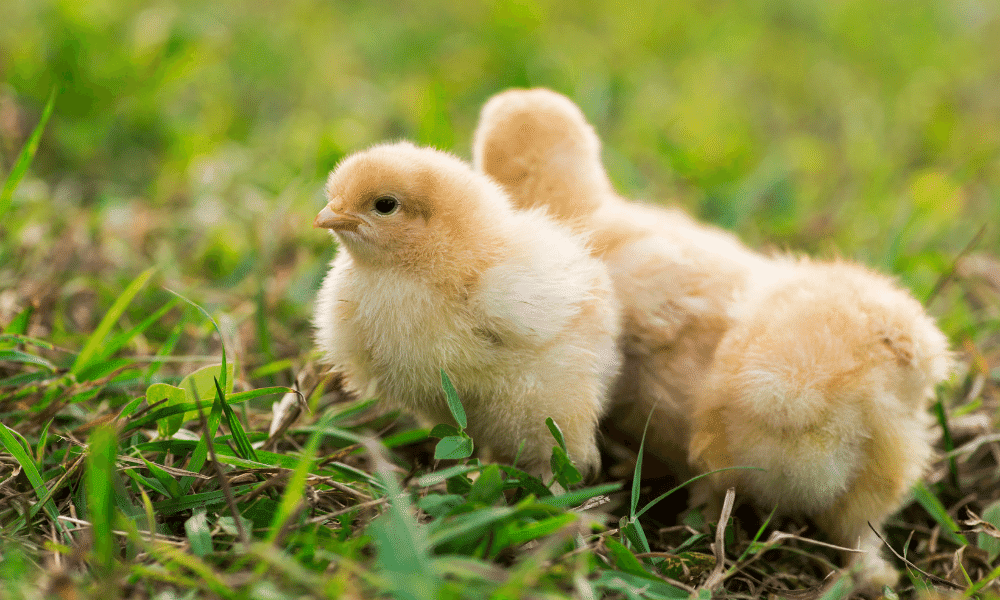Ultimate Guide to Raising Quail for Quail Eggs
Raising quail can bring a unique sense of joy and fulfillment to your everyday life. If you dream of homesteading and enjoy the simple pleasure of gathering fresh eggs, but find the idea of countryside living overwhelming, don't worry. The good news is that embracing the rustic allure of country life doesn't mean you have to give up the conveniences of the urban environment. Quail, with their minimal space requirements and low maintenance, are an excellent alternative to traditional poultry. In fact, they can be even easier to manage than chickens! So, let's embark on this journey together and discover the delightful and rewarding world of raising quail!
Best Quail Breeds for Quail Eggs
In the delightful realm of raising quail for eggs, not all breeds are created equal, especially when it comes to the prolific production of those coveted quail eggs. Whether you're starting a backyard quail empire or simply seeking a daily bounty of these nutritional powerhouses, choosing the right breed can make all the difference. Let's explore some of the best quail breeds for eggs, offering you a glimpse into the characteristics that set them apart.
Best Quail Breeds for Eggs: Comparison at a Glance
Coturnix Quail: Fast maturing and prolific, perfect for those who prioritize egg production.
Bobwhite Quail: A taste of the wild in your backyard, ideal for enthusiasts of traditional game birds.
California Quail: Aesthetically unmatched, catering to those who value beauty as much as bounty.
Coturnix Quail: The Prolific Layer
Dominating the scene with their unparalleled egg production, Coturnix quail (also known as Japanese quail) are the go-to breed for enthusiasts and commercial breeders alike. These feathered friends start laying eggs as early as 6-8 weeks old and can produce a staggering 200-300 eggs per year. If you're looking for reliability and a steady egg supply, the Coturnix quail is a great choice.
California Quail: The Decorative Layer
The California quail, with its distinctive plume and striking appearance, adds a touch of elegance to any quail-keeping venture. Though they lay fewer eggs than the Coturnix, producing about 100-150 eggs annually, their eggs are a treasure trove of flavors and nutrients. Starting to lay at about 20-24 weeks, California quail might test your patience, but the reward is in their beautiful eggs and the aesthetic pleasure they bring.
Bobwhite Quail: The American Classic
While not as prolific as their Coturnix cousins, Bobwhites bring to the table their own set of virtues. They typically start laying at about 16-24 weeks, with an annual production of around 150-200 eggs. What they lack in quantity, they make up for in the robust, wild flavor of their eggs, making them a sought-after delicacy for foodies.
Marketplace
You might also be interested in...

Shop for chickens, livestock or other farm goods

About Farm Expo Events

Sell Your Chicks and Eggs
Bobwhite Quail: The American Classic
While not as prolific as their Coturnix cousins, Bobwhites bring to the table their own set of virtues. They typically start laying at about 16-24 weeks, with an annual production of around 150-200 eggs. What they lack in quantity, they make up for in the robust, wild flavor of their eggs, making them a sought-after delicacy for foodies.
Choosing the best breed for laying quail eggs depends on your priorities: Are you in it for the sheer volume of eggs, the taste, or perhaps the visual appeal of the birds themselves? Each breed brings its own unique set of attributes to the table, from the Coturnix's prolific egg-laying capabilities to the California quail's ornamental charm. Regardless of your choice, embarking on the journey of raising quail promises a rewarding experience filled with delightful discoveries and, of course, plenty of eggs to go around.
Raising Quail vs. Chickens: What's the Difference?
Frequency of Quail Egg Production
Why raise quail for eggs? Quails are known for their prolific egg-laying capabilities. They are considered highly productive layers, with some quail breeds capable of laying an egg almost every day. On the other hand, chickens typically lay eggs less frequently, with most breeds laying an egg every 1-2 days. This difference in egg production frequency makes quails a popular choice for those seeking a consistent supply of eggs.
On average, quails can lay around 200-300 eggs per year. The exact number can vary depending on factors such as breed, diet, and environmental conditions. Quails typically start laying eggs at around 6-8 weeks of age and continue to lay for about 2-3 years. Chickens on the other hand average laying around 18 weeks. For both species, after their prime laying years (after 2-3 years), their egg production may decline. However, it's important to note that individual quails' egg-laying capacity can vary, and some may continue to lay eggs for a longer duration.
Egg Size
Quail eggs aren't just smaller than chicken eggs; they're a culinary delight prized for their distinctive taste and presentation. Averaging 10-12 grams, their petite size adds an elegant touch to any dish. Moreover, quail eggs are known for their nutritional benefits, being rich in vitamins and minerals. For those pondering how much are quail eggs a dozen or the quail eggs price per dozen, it's worth noting that their unique qualities often fetch a higher market price, reflecting their gourmet status.
Incubation Period
The incubation period for quail eggs is shorter compared to chicken eggs. Quail eggs typically require an incubation period of around 17-18 days, while chicken eggs require approximately 21 days. This shorter incubation period allows quail breeders to observe the hatching of adorable baby quails sooner than with chickens.
In summary, quails are highly productive layers, laying eggs more frequently than chickens. Quail eggs are smaller in size and have a shorter incubation period compared to chicken eggs. Quails exhibit monogamous breeding behavior, while chickens engage in promiscuous breeding. Chickens are more prone to broodiness, while quails rely on artificial incubation methods. Understanding these differences can help quail and chicken breeders effectively manage their flocks and maximize egg production.
Quail Behavior: Fascinating and Manageable
In addition to being prolific layers to delicious eggs, quail behavior is also quite amusing and endearing. They also have some interesting habits that you should take note of. Here's some interesting facts:
Broodiness
Broodiness refers to the instinct of a bird to incubate and hatch eggs. Chickens are known for their broody behavior, where they will sit on a clutch of eggs to incubate them. This behavior is less common in quails, as they are not as prone to broodiness. Quail breeders often rely on artificial incubation methods to hatch quail eggs.
Breeding Behavior
Quails and chickens exhibit different breeding behaviors. Quails are known for their monogamous nature, forming strong pair bonds that last a lifetime. They engage in courtship rituals, including elaborate dances and vocalizations, to establish and maintain their pairings. Chickens, on the other hand, do not form long-term pair bonds and engage in more promiscuous breeding behavior.
Nesting Habits
Quails and chickens also differ in their nesting habits. Chickens typically prefer to lay their eggs in designated nesting boxes or secluded areas within their coop. Quails, on the other hand, have a tendency to scatter their eggs throughout their enclosure. This behavior can make it more challenging to collect quail eggs, as they may be hidden in various locations.
Shelter and Care for Urban and Suburban Quails
Raising quail in urban or suburban settings is a practical and rewarding endeavor for bird enthusiasts. Quails, especially varieties like the commonly kept Coturnix quail, offer numerous benefits ranging from their compact size to the nutritious quail eggs they produce. Compared to chickens, quails require significantly less space, making them ideal for smaller areas and contributing to their popularity among those with limited outdoor space.
Space Requirements and Habitat Setup
Quails are perfectly suited for life in smaller, urban spaces, thriving in compact enclosures that can fit in backyards, balconies, or even rooftops. When considering raising quail, one of the first steps is setting up a suitable habitat. Understanding the space and environmental needs is crucial for those interested in offering quail eggs for sale or quail chicks for sale.
A pair of quails can comfortably live in an area as small as 2 square feet, but providing 4-5 square feet allows for healthier, happier birds and more efficient quail egg production. This space efficiency makes quail an excellent choice for those researching how to raise quail in your backyard, emphasizing the ease with which quail can be integrated into a variety of living situations.
The Quiet Nature of Quails
One of the appealing aspects of raising quail, especially in closer quarters, is their relatively low noise level. Unlike chickens, where a rooster's crow can disturb the peace, male quails do not crow, making them neighbor-friendly. This trait is particularly advantageous for those concerned about noise ordinances in urban environments.
Odor Management and Zoning Considerations
Effective management of quail waste is essential to ensure a clean and odor-free environment. Regular cleaning and the use of absorbent bedding materials can significantly minimize any potential odor, a vital consideration for those raising quail vs chickens. Additionally, it's crucial to review local zoning laws and homeowner association regulations concerning quail keeping to avoid legal issues.
Predation and Protection
Even in urban areas, quails face threats from predators such as cats or birds of prey. Ensuring your quail pen is secure with proper fencing and netting is crucial to protect your quail chicks and adults alike. For those interested in breeding quail, predator protection is vital to safeguard not just the adult quail but also the quail eggs for hatching.
Community Engagement and Educational Opportunities
Keeping quails offers a unique opportunity to engage with the community. Whether you're sharing quail eggs benefits, discussing quail breeds, or comparing quail eggs vs chicken eggs, there's a wealth of knowledge to share. This engagement can lead to broader conversations about sustainability, small-scale farming, and the nutritional value of quail eggs, including how quail egg production can be a step towards self-sufficiency.
Economic Considerations
For those considering breeding quail for profit or simply curious about how much do quail eggs sell for, understanding the market is important. Quail eggs price per dozen can vary based on location and availability, but their nutritional benefits and culinary versatility often command a higher price point than chicken eggs. This aspect, along with the relatively low cost and space requirements for raising quail, makes them an attractive option for many.
Conclusion
With proper planning and care, raising quail in urban or suburban settings can be a deeply rewarding experience. From the joy of hatching quail eggs to the benefits of having fresh quail eggs readily available, there are many reasons why individuals choose to embark on this journey. Whether for personal satisfaction, educational purposes, or economic benefit, the world of quail keeping is rich with opportunities for exploration and growth.
Quails and Quail Eggs FAQ
-
Raising quail offers numerous advantages, such as their rapid growth rate, impressive egg production, minimal space requirements, and their remarkable adaptability to a wide range of climates. These attributes make quail an excellent choice for both novice and experienced poultry enthusiasts.
-
Quail have a varied diet that includes grains, seeds, insects, and greens, mirroring their natural dietary preferences. For those raising quail, commercial feeds designed specifically for quail are available, providing a well-rounded nutritional profile to support their health and egg production.
-
Quail are notably space-efficient, requiring significantly less room than other poultry types. A general guideline is to allocate approximately 1 square foot of space per bird within a cage or aviary system, allowing them to live comfortably and maintain healthy social interactions.
-
Quail reach maturity at a relatively quick pace, typically between 6 to 8 weeks of age, depending on the specific breed. This quick maturation allows for an expedited start to egg production and the enjoyment of their companionship.
-
Quail begin laying eggs quite early in their life cycle, typically starting at around 6-8 weeks of age for many breeds. This early onset of egg production is one of the many appealing aspects of raising quail, as it allows breeders to quickly benefit from their investment.
-
Quail are renowned for their prolific egg-laying capabilities. Depending on the breed, some quail can lay up to 300 eggs annually. Despite their small size, quail eggs are packed with nutrients, making them a valuable addition to any diet.
-
While it's uncommon for quail to lay more than one egg per day, some of the more productive breeds, like the Coturnix quail, are capable of laying an egg almost daily under optimal conditions. This high rate of production makes quail an attractive option for those interested in egg farming on a small or large scale.
-
Certainly! Quail can thrive in backyard settings, assuming there's adequate space to meet their needs and you adhere to any local regulations concerning the keeping of poultry. Researching your area's specific guidelines will ensure your quail-keeping journey complies with municipal bylaws, offering a seamless integration into suburban or urban life.
-
Yes, quail do have specific housing needs, though they are not overly complicated. Their enclosures should offer robust protection from predators, ample ventilation to maintain fresh air, and ease of cleaning to uphold sanitary conditions. Depending on your spatial availability and personal preferences, you can opt for cages, aviaries, or even consider a free-range system for your quail. Each housing option provides a unique set of benefits and should be tailored to the well-being of the quail.
-
Breeding quail is a straightforward process that involves strategically pairing or grouping males with females. Quail usually mate naturally within these arrangements. Once mating occurs, females will begin laying eggs, which you then can collect for artificial or natural incubation, depending on your setup and the quail's breed-specific behaviors.
-
Like all birds, quail are susceptible to certain diseases, but with proper care, the risk can be minimized. Maintaining rigorous hygiene practices, ensuring their living environment is clean, and regularly monitoring their health are crucial steps in disease prevention. Should you have concerns about their health, consulting with a veterinarian experienced in avian medicine is recommended for professional advice and treatment.
-
Quail make fascinating pets due to their relatively low maintenance and the unique behaviors they exhibit. They are known for their intriguing calls and social interactions, providing endless entertainment and companionship. Quail also require less space than traditional pets, making them suitable for a variety of living situations.
-
The demand for quail meat and eggs is on the rise, presenting a lucrative opportunity for those interested in quail breeding. These products can be sold directly to consumers, at local farmers' markets, or to restaurants interested in unique, high-quality ingredients. Before selling, it's essential to familiarize yourself with any local regulations or certifications required to market quail products.
-
Quail manure is a valuable byproduct of quail keeping, serving as a potent organic fertilizer. It can be composted to enrich garden soils or applied directly to fields to enhance crop growth and soil health.
Looking for quail eggs near me? Find local quail breeders on Roobeez online marketplace. With Roobeez convenient search features, you may discover a quail breeder right around the corner! Conveniently shop quail eggs, quail for sale, and more. Sign up today for FREE to discover local small farms near you! Roobeez is the first-of-its-kind online farmer’s market designed specifically for poultry lovers. Roobeez is a unique online platform tailored for poultry enthusiasts like you. Membership is free and offers unlimited access to the marketplace, informative guides, a supportive community, and additional benefits.
You might also be interested in…























Discover farmers markets near you with Roobeez! Explore local events, find seasonal and weekly markets, and shop fresh produce and handmade goods on our marketplace. Contribute to our growing directory by adding your favorite markets and community events. Supporting local has never been easier!